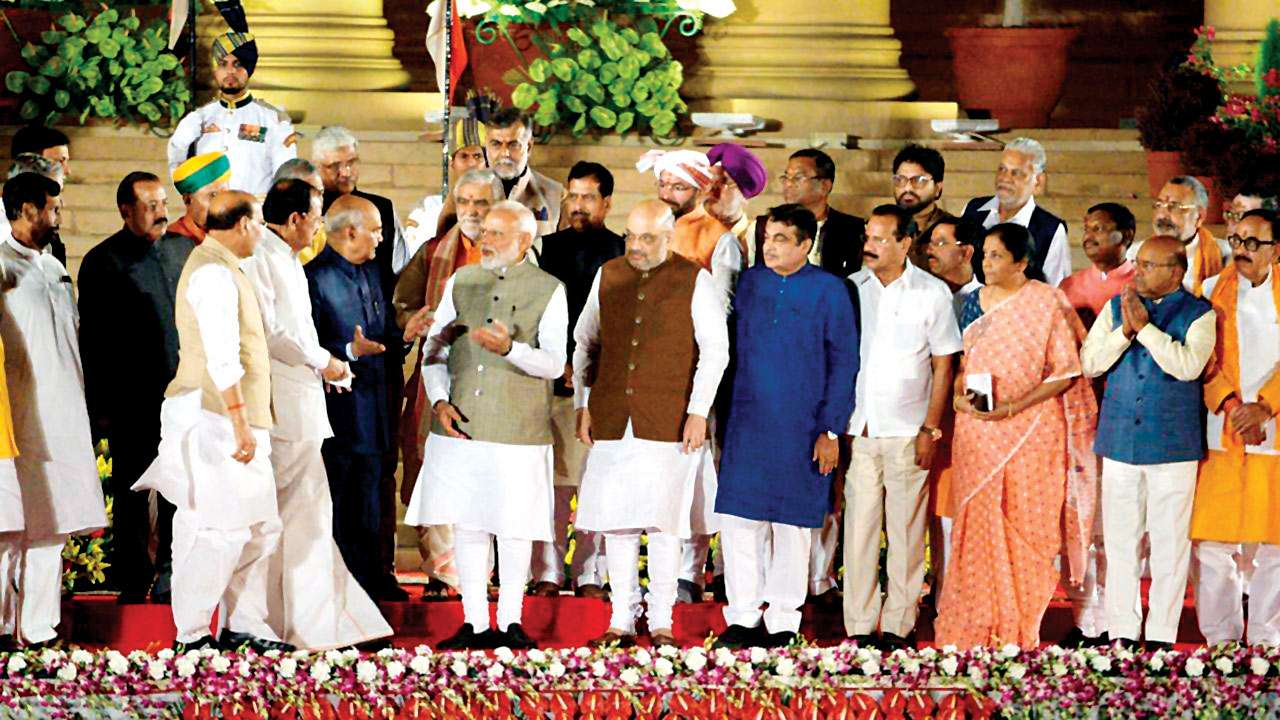
The presence of BIMSTEC nations at the swearing-in ceremony of Prime Minister Narendra Modi, conveyed a strong message.
It signalled at the fact that a stable and secure neighbourhood will be a priority of the country’s foreign policy.
BIMSTEC or the Bay of Bengal Initiative for Multi-Sectoral Trade and Economic Cooperation, was established in 1997. However, it was only since the BRICS-BIMSTEC summit in 2016, that the regional bloc gained renewed importance in India’s foreign policy discourse.
The latest diplomatic outreach was not the first time, when heads of a regional organisation were invited to an occasion of national importance. In 2014, PM Modi had achieved a diplomatic feat by inviting the heads of the South Asian Association for Regional Cooperation (SAARC) nations for his swearing-in ceremony. It was remarkable that leaders from all the seven countries, including the then Pakistani premier, Nawaz Sharif, accepted the invitation.
Along similar lines, the government invited the heads of all ten ASEAN nations as Guests of Honour for India’s Republic Day celebrations, in 2018.
With this, New Delhi sought to demonstrate its commitment to the “Act East” Policy, which is driven by cooperation on 3Cs – commerce, culture and connectivity.
Thus, even though inviting leaders of a regional organisation is not unprecedented, an invitation to the heads of BIMSTEC countries sets the tone for India’s foreign policy priorities.
Firstly, BIMSTEC links two regions as it brings together the economies of India, Nepal, Bhutan, Bangladesh and Sri Lanka in South Asia and those of Myanmar and Thailand in Southeast Asia.
It, simultaneously, links the agenda of two major foreign policies of the BJP-led government, “Neighbourhood First” and “Act East.” Therefore, by inviting the heads of government of BIMSTEC nations, New Delhi conveyed its commitment to pursue the two foreign policies in tandem, thereby maximising efforts towards regional stability and security.
Secondly, BIMSTEC provides New Delhi a reliable platform to enhance multilateral cooperation that can strengthen regional connectivity. It can also drive a mutually beneficial and sustainable developmental agenda across the 14 focus areas of BIMSTEC. Some of these areas are trade, technology, transport, tourism, people-to-people connect and, blue economy.
A strong regional network in this part of the world would benefit as many as 22 per cent of the world’s population, whose combined GDP currently stands at about $2.7 trillion. Thirdly, the latest invitation reaffirmed the government’s strategic focus on the Indo-Pacific and the critical role the Bay of Bengal plays in India’s maritime policy.
The geostrategic position of the Bay of Bengal puts it at the crossroads of the Indian Ocean and the Pacific Ocean and in close proximity to one of the busiest trade conduits – Strait of Malacca. The region also witnesses increasing Chinese naval and commercial presence, which has been accelerated under the garb of the Belt and Road Initiative (BRI).
The BRI has been endorsed by all BIMSTEC members barring Bhutan and India. Thus, a renewed focus on BIMSTEC can also serve as a bulwark against Chinese expansion in the region. It can help establish a strong regional architecture, and boost maritime cooperation and economic growth.
The invitation to BIMSTEC leaders has reignited the debate on the future of the other regional grouping SAARC and also the approach India would take in its engagement in South Asia.
Although it is clear that the SAARC has hit a dead-end due to the obstructive presence of Pakistan, India’s engagement with its western neighbours has not been halted.
Instead, PM Modi’s decision to select Maldives for his first international visit in the second term, and the continued warmth in India-Afghanistan relations, is an illustration of the government’s ongoing focus on South Asian solidarity, with or without Pakistan.
Therefore, the latest outreach to BIMSTEC countries is largely a continuation of PM Modi’s emphasis on the neighbourhood that was integral to his foreign policy in his first term.
While the diplomatic initiative itself is much welcome, New Delhi must now stress on the future course of action that can help realise the full potential, both economic and geostrategic, of the regional grouping.
The author is manager, strategic and foreign relations, Vision India Foundation